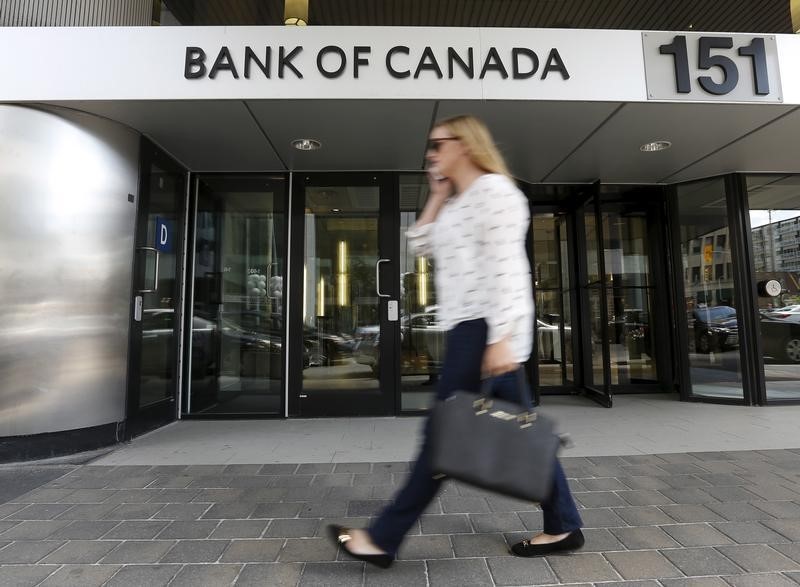(Adds details on economy paragraphs 6-8)
By Tom James
BELLINGHAM, Wash., Sept 26 (Reuters) - Central banks may find it more challenging to maintain inflation targets as the world economy becomes more integrated with increased international trade, the head of the Bank of Canada said on Monday.
Policymakers need to acknowledge the risks from these changes and consider how to blunt their potential impact on monetary policy decisions, Governor Stephen Poloz said in a lecture at Western Washington University in Bellingham, Washington.
Increased integration can make economies less sensitive to changes in exchange rates and make domestic inflation more dependent on international developments, Poloz said, citing model simulations by the central bank.
"Models that do not recognize rising integration are likely to predict that monetary policy actions will be more effective at stabilizing the economy and controlling inflation than they will prove to be in practice," Poloz said.
The Bank of Canada aims to keep inflation at 2.0 percent. The annual inflation rate in August sank to 1.1 percent, a 10-month low.
Oil-exporting Canada has also been facing lackluster growth following the slump in crude prices that forced the central bank to cut interest rates twice last year and put the country in a brief recession.
Wildfires in northern Alberta also caused growth to shrink in the second quarter of this year. While the bank expects to see a rebound in the second half of the year, it acknowledged earlier this month that disappointing exports mean the economic profile could be lower than it had anticipated. a question and answer session with the audience, Poloz reiterated it will take three to five years for the economy to restructure itself in response to lower oil prices.
In his speech, Poloz said the evidence of increased international integration is "sufficiently compelling" for central bankers to take seriously as it may affect the models they use to formulate policy.
A Bank of Canada simulation found that more aggressive interest rate cuts were needed to cope with a shock in a scenario that assumed a high level of cross-border integration.
This is in line with the bank's hypothesis that "a highly integrated global economy will make it more challenging for central banks to stabilize economic growth while pursuing inflation targets," Poloz said.
Policy-makers could consider using complementary policy measures to offset the impact, or allow for greater flexibility in a central bank's inflation objective, he said.
